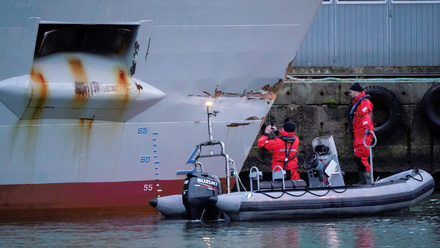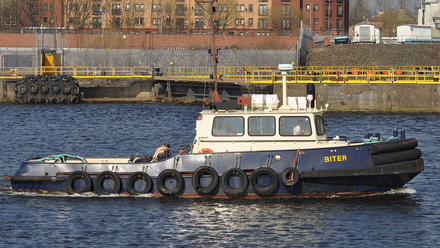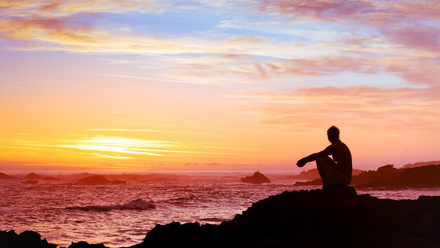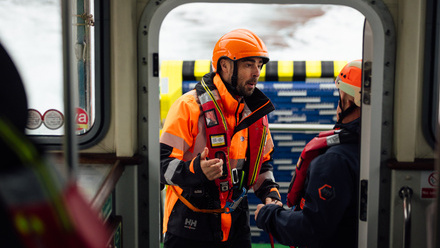A focus on mental health from the Small Ships SIG
It’s Blue Monday here in the UK, the unhappiest day of the year because of the short days, cold weather and the dip in people’s finances after the expensive Christmas break. It can be a tough time, and it’s certainly a difficult period to work in the marine industry. Tom Keeling, the chair of our Small Ships Special Interest Group (SIG) explores the issues and what those affected can do about them.
Within the small ships sector, we have a mix of both shore and ship-based members, and for many the isolation experienced at sea might be mirrored by those suffering the loneliness of being alone on land. In particular, men are less likely to discuss mental health, with the National Health Service in the UK stating only 36% of referrals for mental health matters are for men. Suicide rates are also disproportionate – men are three times more likely to commit suicide than women, according to The Samaritans.
Across the marine professional sector there is growing energy to work harder to protect our most valuable asset; our people. This was a key focus of the excellent ‘Mental Health at Sea’ event hosted by the IMarEST partner charity, the Guild of Benevolence in London at the end of last year. We were lucky to hear from the well informed Nusrat Ghani MP, deputy speaker of the UK House of Commons and former maritime minister, as well as hearing some harrowing tales of suffering from seafarers.
A panel also discussed what we can do to drive change. It’s true that the minimum working and living rights for some seafarers are enshrined in international law by the Maritime Labour Convention (MLC), but many small ship crews will not be in scope of this. Technology-based initiatives are making a difference, such as the support app from the Isle of Man Shipping Register. Also raised was the role of CHIRP, an independent and impartial charity dedicated to improving safety in the air and at sea, the concept of kind management, and the operational and cultural barriers that prevent seafarers from speaking up. Training for personnel in all roles was considered to be highly valuable, and the room agreed that finding specific help can be confusing as resources are varied and seem fragmented.
The Small Ships SIG wants to open the conversation and find out how we are all doing and start to see what we can do to help each other. One objective is to build a web resource our members and others can use to get the right help. We would love to hear about your ideas and suggestions about how we can make this happen, across the whole membership of the IMarEST. Email me or join the Small Ships SIG to contribute.
If you do know anyone suffering with mental health problems, we have started to collate a list of helpful resources, many gained from talking to colleagues at the Guild of Benevolence event. Several are Seafarer or maritime specific that might not be widely known. I hope these are of help:
Marine sector-specific resources
CHIRP (https://chirp.co.uk/) - The Confidential Human Factors Incident Reporting Programme (CHIRP) is an independent and impartial charity dedicated to improving safety in the air and at sea. Their confidential human factors incident reporting system empowers people working in the maritime and aviation sectors to share their safety concerns without the fear of being identified. If agreed by those who have reported, they follow up with the relevant organisations so that the necessary action can be taken. Report human-factor safety incidents via their app, website or email.
Merchant Navy Welfare Board (https://www.mnwb.org/) – The work of MNWB is to help improve the effectiveness of all those charities caring for merchant seafarers, fishermen and their dependants. This safeguarding course might be of interest.
Mission to Seafarers (https://www.missiontoseafarers.org/) - The Mission to Seafarers provides help and support to the 1.89 million crewmen and women who face danger every day to keep our global economy afloat. Offering support to seafarers, see this page for info.
Safer Waves (https://saferwaves.org/support/) - Here to support Seafarers on merchant ships who have experienced sexual abuse or gender discrimination. An initial email results in support back within 3 days.
Sailors Society (https://www.sailors-society.org/) - Any seafarer in desperate trouble or just needing to talk to someone can call or message. Available 24/7 to support those who keep the world trade moving, despite huge personal sacrifices. Seafarers ensure we have food, fuel, medicines and more than 90 per cent of everything we own and use. We ensure they have what they need when crises hit. e-learning here.
Seafarers Hospital Society (https://seahospital.org.uk/) - The Seafarers Hospital Society is a maritime charity dedicated to meeting the health, welfare and advice needs of seafarers of any nationality based in the United Kingdom. See the Togetherall programme - this is the only online peer-support community that is moderated 24/7 by fully trained mental health professionals and led by an on-duty clinical team. An early innovator in digital mental health, since 2007 they have provided a place for support to over 500,000 people worldwide. Togetherall work with the NHS, the British Armed Forces, employers, charities and over 250 universities and colleges. Thanks to funding from the Seafarers Hospital Society, free support is now available to all working and retired Merchant Navy seafarers and fishermen of any nationality who are based in the UK, and their families
The International Seafarers’ Welfare and Assistance Network (ISWAN) (https://www.iswan.org.uk/) - Improving the lives of seafarers and their families with services, resources, strategies and advocacy. Offering 24/7 support to seafarers and their families. See this link for a maritime-specific mental health training course.
Waterways Chaplains (https://www.waterwayschaplaincy.org.uk/) - Waterways Chaplains offer support to boaters and to all who live, work or just enjoy the canals and waterways in England and Wales. As volunteers, they regularly visit the waterways offering a listening ear or practical help to those we meet or make contact
General resources
Campaign to End Loneliness (Helpful links | Campaign to End Loneliness) – Here is a fantastic general contacts resource for those in need of some mental health support. There are also sections specifically for young and old.
Mental Health Foundation (https://www.mentalhealth.org.uk/) - Researching, developing and advocating for new and more effective ways to support and protect good mental health. Useful information about ways to get help as well as things you can do yourself, such as mindfulness.
Mentell (https://www.mentell.org.uk/) - Mentell is a UK charity that provides men’s groups for males aged 18+ to talk in a safe and confidential space, free from advice and judgement.
Mind (https://www.mind.org.uk/) - Fighting for the mental health of people in England and Wales. They offer some specific guidance for those who find the holiday season particularly difficult.






